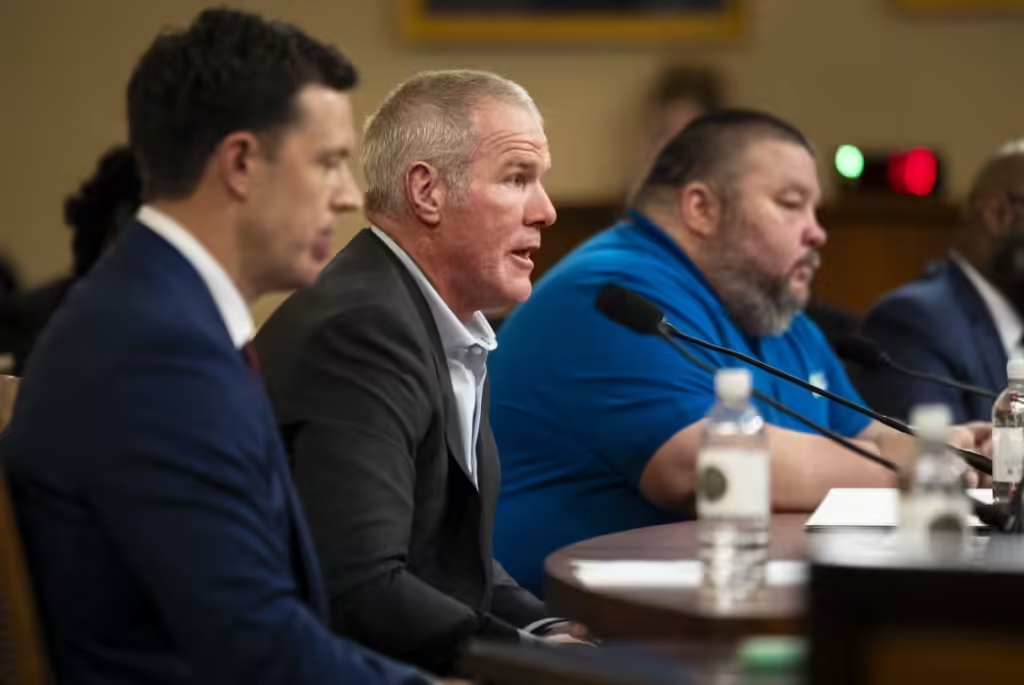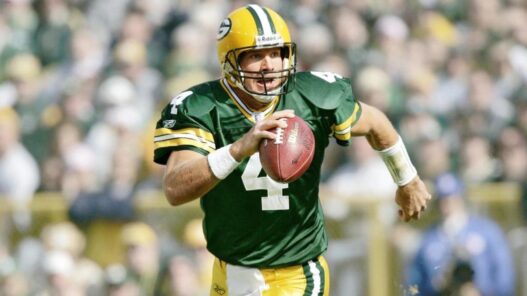In a candid discussion, former NFL quarterback Brett Favre revealed his growing concerns about the potential link between football and long-term health issues, particularly Parkinson’s disease.
Favre, who spent over 20 years in professional football, expressed fears that the repeated head injuries he sustained throughout his career may increase his risk for developing Parkinson’s.
During his interview, Favre shared his personal worries and acknowledged that he has noticed changes in his body and mind, which he attributes to the countless hits and concussions he endured on the field.
While Favre has not been diagnosed with Parkinson’s, his concerns echo the growing body of research linking football and other contact sports to serious neurological conditions such as chronic traumatic encephalopathy (CTE), Alzheimer’s, and Parkinson’s.

Parkinson’s and Football: The Risks
Favre’s candidness comes as the spotlight on the long-term dangers of contact sports continues to grow.
The risk of Parkinson’s, a neurodegenerative disorder that affects movement and speech, increases for individuals with a history of head trauma.
Football players, who often experience multiple concussions and repeated blows to the head, are particularly vulnerable.
Favre himself admitted that during his playing days, head injuries were not taken as seriously as they are now.
Players often continued to play despite being concussed, a practice that is now recognized as extremely dangerous.
With advances in medical research, the consequences of repeated head trauma are better understood, leading to heightened concerns over the safety of football players and athletes in similar sports.
What Is Parkinson’s Disease?
Parkinson’s disease is a progressive neurological disorder that affects movement, often leading to symptoms like tremors, stiffness, and slowness of movement.
While the exact cause of Parkinson’s remains unclear, scientists believe that genetic factors and environmental triggers—such as head trauma—may increase the risk of developing the disease.
Professional athletes who participate in high-impact sports are at greater risk due to repeated concussions and sub-concussive hits, which have been shown to damage brain cells over time.
With players like Favre bringing attention to this issue, the discussion around preventing and managing these risks is gaining momentum.
Football’s Response to Health Risks
The NFL has faced significant scrutiny over its handling of player health and safety, particularly in relation to head injuries.
Over the past decade, the league has introduced stricter rules on tackling, better protective gear, and enhanced concussion protocols in an attempt to reduce the long-term risks of playing football.
However, as more former players come forward with neurological conditions, critics argue that more needs to be done to protect athletes.
Favre’s openness about his concerns highlights the emotional toll of facing potential neurological issues.
While he hopes to stay healthy, he, like many other athletes, remains vigilant about monitoring his health.
The debate over the safety of contact sports continues, with many advocating for better awareness, safety measures, and support for athletes both during and after their careers.






















